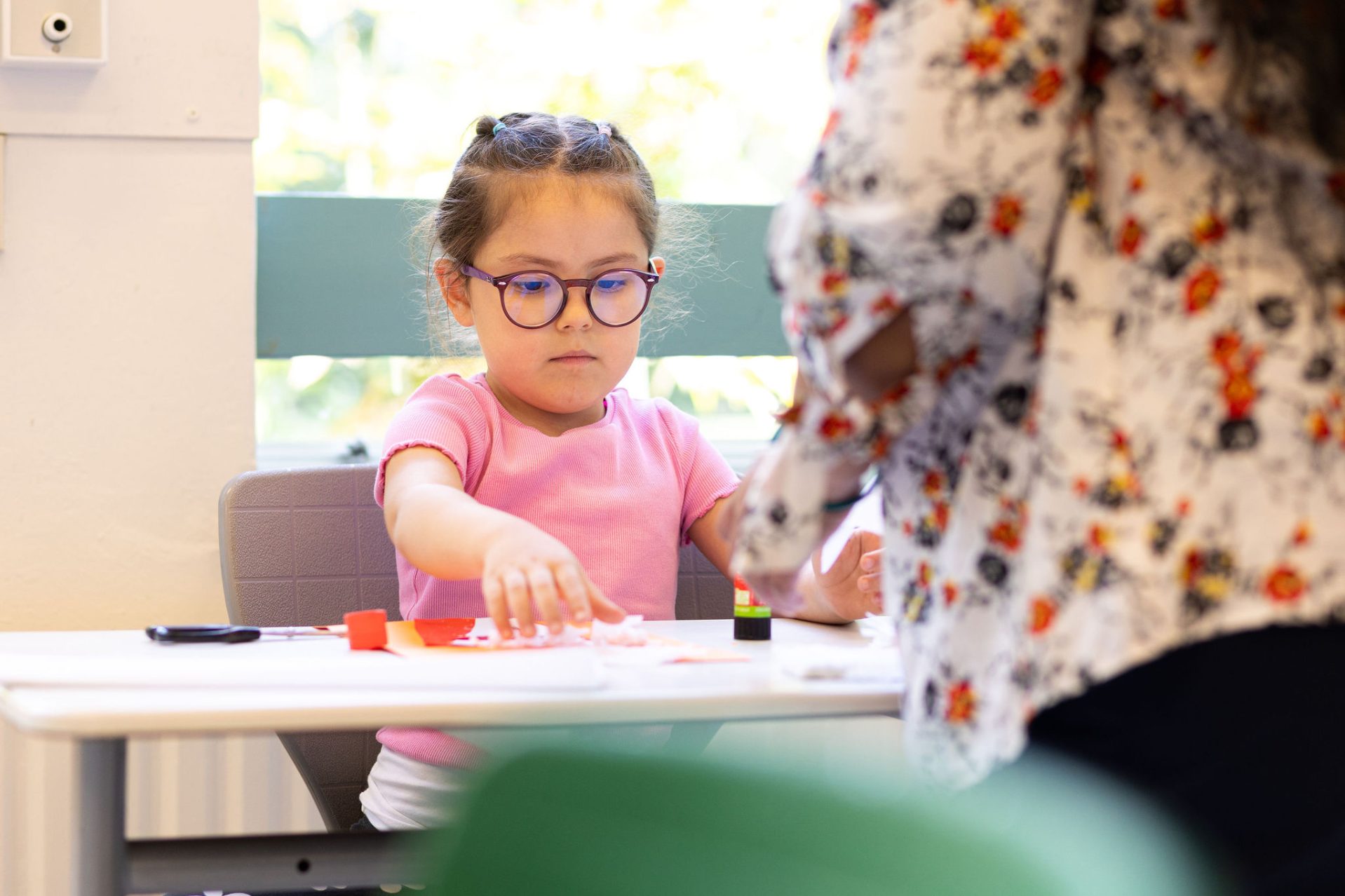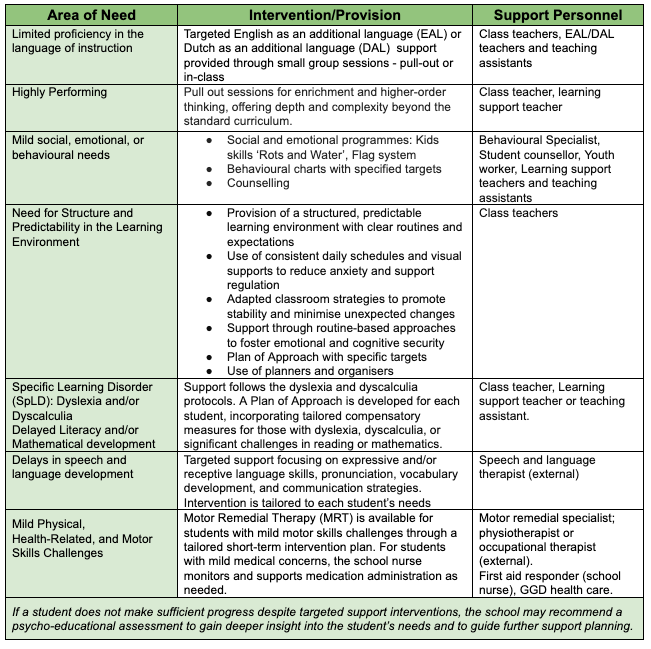
Care for Young Children
Healthcare
Happy healthy children
What can Youth Health Care do for you and your child?
Growing up healthy and safe comes naturally to most children. As a parent or carer, you want the best for your child, so that he or she can grow up in a safe and stimulating environment. Primary school children develop at a rapid pace. This sometimes raises doubts, questions or concerns. This is when Youth Health Care (JGZ) can help.
Youth health care
Our school cooperates with the Youth Health Care (JGZ) team of the GGD Brabant-Zuidoost. This team consists of a youth doctor, youth nurse, assistant, behavioural scientist and a health promotion worker. Youth health care is for all children and their parents: from birth to 18 years of age. For more details on the services provided by JGZ please click on this link.
Always welcome
Do you have questions or want to make an appointment for a health screening or interview? You can contact the Youth Health team.
- Check the website www.ggdbzo.nl/mijn-kind
- Log in with your DigiD to the JGZ portal: https://jgzportaal.ggdbzo.nl. Here you have 24/7 online access to data on your child up to 11 years old and can ask your questions.
- Would you rather call? You can do so by calling 088 0031 414 on Monday to Friday between 8.30am and 5pm.
Support and Inclusion
The Primary Department at the International School Eindhoven (ISE) welcomes children from the age of four, regardless of religion, ethnicity, nationality, or beliefs. Rooted in principles of equality and respect, our multicultural environment prepares students for a global future.
Inclusive Education
The ISE is committed to helping each student reach their full potential through:
- Tailored educational environments that address individual needs
- Early identification and support for learning challenges
- Collaboration with parents and students in the learning process
- Clear staff roles in supporting additional needs
Framework for Inclusion
Our inclusive approach is built on these core principles:
- Inclusive: Removing barriers to learning and embracing diversity
- Student-Centred: Prioritising each student’s best interests
- Needs-Based: Adapting to strengths and challenges
- Prevention-Oriented: Emphasising early detection and intervention
- Results-Focused: Using evidence-based strategies for positive outcomes
- Collaborative: Involving families, teachers, and students
- Culturally Responsive: Reflecting the diversity of our community
- Equitable: Providing support tailored to individual needs
Student Demographics
The Primary Department serves around 650 students from over 40 nationalities. With a transient population, the average stay is three years. Our diverse staff and student body foster a multilingual, culturally rich environment.
Language and Learning Support
ISE is a language-friendly school, offering additional Dutch and English lessons. We support students with mild to moderate:
- Language barriers
- Academic learning needs
- Behavioural, physical, social, and emotional needs
Eligibility for Additional Support
ISE Primary can provide support to students who:
- Have a cognitive profile as of TIQ 90+
- Are physically mobile (campus accessible)
- Have mild speech/language impairments and age-appropriate English (British National Curriculum standard)
- Have mild behavioural or social-emotional disorders with age-appropriate English
- Have mild hearing or visual impairments
Students receive tailored support from a range of internal and external specialists.

We have three Learning Support Coordinators who oversee students’ overall development, with a particular focus on addressing needs identified by class teachers. They provide support, guidance, and advice to both teachers and parents, helping to ensure that each student’s learning needs are effectively met. The learning support coordinators also collaborate closely with external specialists, facilitating access to additional expertise and services when needed.
In the 2024/25 school year, students receiving additional support were invited to reflect on and comment about their experiences. They shared feedback on both the nature of the support they received and their feelings about having support. This feedback provided staff with valuable insights into the effectiveness of the support strategies, the students’ sense of inclusion and agency, and areas for improvement in how support is delivered. In the 2025/26 school year, all students in Groups 6 and 7 will be surveyed about the support they receive, regardless of whether they access specific additional support. This broader approach aims to gather insights into students’ overall experiences with learning support, classroom strategies, and their sense of being supported in their learning journey.
To enhance the support provided for students with additional needs, the following steps will be taken in 2025/26
- Include parents and students in setting goals for development in the Plans of Approach
- Build a bank of teaching strategies to boost students’ executive skills development
- Personalised perspectives of development to be implemented
- Aligning the content of the Plan of Approach standards
Here is the link to our full School Support Profile
